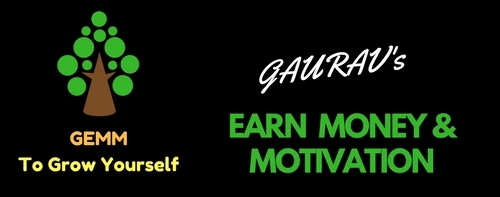HOW TO DETECT ONLINE SCAMS
It would be great to have some magic wand which can identify whether an online claim is really trusted worthy or just another scam. But we don’t have any. The use of the internet is becoming popular in multiple folds due to technologies development, especially in developing countries. The new crop of internet users is the focus of hackers around the world. They will make you feel afraid and scared, try to a cash your greed and honey trap if possible and ultimately make your equipment handicap. But don’t worry, just keep your eyes open, use your wits and try to scan the content while browsing the internet and if it matches with one of my 12 favorite ways to detect online scams, report as spam to your network security software partner. So here are few methods one can easily spot whether it’s online trap or the real thing.
- Is money involved

Though there is nothing for free in life be extra cautious if it’s a lottery, prize, sweepstakes or reshipping scams where money is involved. You will get a flash on your screen that you have won money, that your money is in danger or that you have been left money. Here the common element is money and it is FREE. Yes, the FREE MONEY should be the biggest indicator for you that you might be looking at a scam.
2. Time Sensitive! Urgent! ACT NOW! Don’t Wait!
You might have definitely read these words at the end of presentation videos given by so-called “Be Rich Overnight” websites. They create a false sense of urgency and attempt to induce panic in order to circumvent their victim’s rational thought processes. After giving a small mumbo-jumbo idea on how to make money, these notorious scammers will play with these words. They create such an emergency that so you don’t have the time to use your logic and are busy with urgency – created for making down payment. This false urgency is simply to distract you from their true goal of implementing scam.
3. Scam with a flare of Greetings
The greeting cards Scam is another old scam where you receive a greeting card in your email inbox which appears to be coming from a relative or friend.
As soon as you read this email and click on the card, some malicious software will start getting downloaded and will be installed on your operating system. The malware may be an annoying program that will launch pop-ups with ads, unexpected windows all over the screen. It is better not to open attachments of suspicious emails and delete them immediately.
4. HoneyTrap / Marriage Scams
If you ever been on the social dating networks you might have received an email offering online dating services. Usually, the request from male scammers come from West Africa and from female scammers come from the eastern parts of Europe. They gain the trust of potential victims through intimate emails exchanged over a long period, say for months or even years. Marriage proposals from foreigners offered especially to widow’s fall under the same category. After creating the trust, there comes the moment when a meeting is arranged. When this happens, either of the two things may take place:
- You are informed about an “unpredictable” event where the scammer lost his passport or some other valuable item and needs money transfer in his account on an emergency basis.
- If the victim happens to be from a rich family, he/she may be kidnapped and a large sum of money could be requested from the family.
Hence, it is better to be aware of such scams well in advance and avoid sharing personal details
5. Phishing – the most popular word on your Bank’s Home Page
If there is an email or communication from social networks asking for login credentials of your bank account, social network, work account, cloud storage or any other personal data then beware- it is a phishing scam. Your Bankers always notify you regarding Phishing through emails and SMS – invest some time to understand it. Cybercriminals will send you the messages and try to trick you into giving them the information which can prove to be valuable for them to sweep your hard-earned money from your bank account.
6. Is there any mail that scares you…or a call
Have you received a call from your Bank that there is something wrong with your account or a mail on your computer from law enforcement department that you’ve committed a crime such as downloading pirated software or a mail confirming that your computer is in danger etc. – then think twice. Scammers use fear to manipulate their victim into doing something he normally wouldn’t. Never give your personal information to these calls and emails.
7. Pre-approved bank loan or credit card scam
Many people with Financial Difficulties get trapped by “too good to be true” bank offers which guarantee you a large sum of money and have already been pre-approved by the bank. The same is true with Credit card offers. If such an incredible pre-approved loan is offered to you or credit card with high credit limit is proposed by the bank, simply use your logic to understand how is it possible for a bank to offer such a large sum of amount or credit card without even knowing your financial repaying background. The answer will definitely click in your mind if it’s for real or not. A big number of people lose money by paying the “mandatory” processing fees required by the scammers.
8. Shopping websites Scam
Who does not love shopping? Now it’s easier and more convenient to shop online with a few clicks. But for your online privacy, you need to be very careful about the sites you’re constantly accessing. There are thousands of websites out there that provide false information and might redirect you to malicious links, giving hackers access to your most important data: credit card, name, and address.
If you see a great online offer which is “too good to be true”, it might be tempting to take it right away, but you should stay safe. These sites can be easily identified by watching pop ups indicating semi naked pictures of female models.
9. If It Sounds Too Good to Be True, then it probably is
We all know this old saying. This is definitely the case when it comes to online scams. Scammers around the world are very smart. They understand the fact that many people would love to get rich quickly. If you come across some website claiming to make you rich with minimal effort or sell you the idea of money making secret that no one else knows about – be sure that it is a scam.
10. Make money fast scams
Cybercriminals lure internet users into believing that they can make easy money on the internet. They’ll promise non-existent jobs, plans and methods of getting rich quickly. Using various job types, such as work-at-home scams, the victim is lured into giving away personal information and financial data with the promise of a well-paid job that will bring lots of money in a very short period. It is a quite simple and effective approach, because it simply addresses one’s basic need for money, especially when that person is in a difficult financial situation.
An E-Mail declaring you to be the next millionaire addresses some of your wildest fantasies, such as quitting our jobs and living off the fortune for the rest of your lives, without ever having to work again, your imagination falls prey easily to images of a dream house, endless summer vacations or expensive items that a normal man can only dream of.
But the dream ends as soon as you realize you have been just another scam victim. DO NOT fall for this online scam.
Have you ever thought what every scammer is looking for apart money from you? Yes, your personal information. So they can steal your identity and sell it to other crooks. They can also use your personal information to obtain loans and credit cards in your name. If it seems too good to be true, it’s most likely a scam.
Hence, be double sure not to reveal your personal information to anyone – whatever genuine it seems to be. Keep your fist closed and your mouth shut – if ever come in contact with such emails and calls.
11. Lotto Scam
The lottery scam comes as an email message that you won a huge amount of money and all you need to do to collect your fortune is to pay some small fees. The new breed of internet users and mobile owners fall for the trick of free money and end up with financial losses and also the loss of personal information. Take care of Lottery Offers as nothing is for free my friend.
12. The Nigerian scam
The notorious Nigerian scam is very famous and still, people get cheated so easily. It was started by Nigerian Nationals and later copied by many African Nationals.This scam involves an emotional email, text message, letter or social networking message coming from a scammer. The email will look very authentic and make you believe that it is from some Prince/Princess in trouble, an official government member, a businessman or a member of a very wealthy family. Maximum scammers appear to be a woman (to get more attention and sympathy) who asks you to give help in retrieving a large sum of money from a bank. You need to pay initially small fees for papers and legal matters and in exchange for your help, they promise you a very large sum of money as commission. After absorbing information, you can easily identify The Nigerian Scam and save yourself.
Use Commonsense and logic. “ Question your Intelligence”
Whenever something disturbs you on internet or offer seems to be too good, use your common sense and logic. Counter Question your intelligence with questions like –
- Why do they require you to pay upfront money?
- Do they promise that you will become rich overnight?
- What’s in it for them – the scam artists?
- How are they making money?
- Unfortunately, if you order the scam, you will discover that you received a “how-to-program “ for creating your own scam. The truth is scammers don’t get rich on their scams either, except few.
Conclusion
Online scams are developed using increasingly sophisticated means of deceiving users, especially in the rich Western countries. Online scams have increased over the last 10 years and the total losses doubled in the recent years, affecting both private individuals and large-scale businesses. You may think that you can’t be fooled by these online scams since some of them are quite hilarious. But some scams are so well organized and convincing, and the people behind so difficult to catch, we need to always keep our guard up. It is better to stay informed about the latest scamming strategies which I will be sharing with you from time to time.
